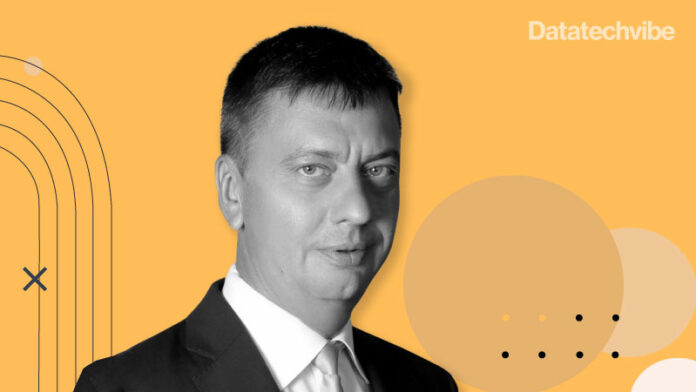“When decision-makers are open to the new data architectures, becoming unafraid of breaking rules that we had been subject to 10 years ago, the challenges with implementation are also reduced”, says Alexey Sidorov, Data Management Director and Chief Evangelist, Denodo.
In this interview, Sidorov, who has built a reputation as a strategic counsel in all elements of data management, designed and managed enterprise-wide data integration technologies for industry heavyweights like Nokia and Deutsche Bank before joining Denodo as Chief Evangelist, talks about the common challenges in implementing data virtualisation and Denodo’s initiative toward developing Responsible AI, among many other things.
Excerpts from the interview:
How do you see the Middle East’s use of data virtualisation and data fabric growing?
Concepts like data virtualisation and data fabric are gaining traction, drawing data experts from all across the world, not only in the Middle East. However, we can observe tremendous interest in such cutting-edge architecture in the Middle East sector, particularly from government institutions for inter-governmental data interchange among ministries. You might concentrate on modern data architecture landscapes with data virtualisation as a foundation in these domains. Others, such as logical data fabric, data mesh, and knowledge graphs, are increasingly becoming a feature of modern architecture for many data-driven businesses in the Middle East and North Africa.
What are the common challenges in implementing data virtualisation?
We (Denodo) frequently observe a complex challenge persisting in most organisations prior to the implementation phase, namely, the mindset challenge. It’s difficult to change the thinking and move the mind toward new distributed data management architectures because of certain frameworks directed by data landscapes that have existed for 20-25 years.
The difficulty for data management and integration technologies is not only regional but also a global market concern. My current role entails applying my skills and experience to help organisations implement this mindset shift by assisting providers. The issues with the implementation section are also minimised when decision-makers are open to new data architectures and are not scared to break regulations that we were subject to ten years ago.
Do you think the performance of a neural network is critically determined by its size?
Yes, I believe that is correct. This is where size matters: the larger your neural network, the greater the insights you can glean from the data you’ve provided. Modern neural networks, on the other hand, are frequently expanded well beyond the expected requirement. While it can improve the speed of the training process and a network’s ability to generalise, it can also make the necessary output more complicated in some situations, raising resource consumption and project expenses. In the future, experimenting with hybrid AI technologies could open up new avenues for constructing more resource-efficient neural networks.
What is Denodo’s initiative toward developing Responsible AI?
Our organisation is now working on developing a platform that provides a fundamental layer for data scientists at every stage of their data journey through context-driven AI risk and compliance assessment. With an obstacle layer present within the platform, we want to enable a single access point and search for all data scientists for all data available throughout the organisation. Based on commercial and legal context, our platform assists cross-functional teams in aligning on Responsible AI criteria for fairness, performance, transparency, privacy, security, and more. It also makes it simple for teams to examine if their AI use cases match those objectives by evaluating ML models, datasets, and development processes on a technical level.
What is Denodo’s future roadmap for data science applications?
The top technologies and paradigms that can revolutionise the world are data science and artificial intelligence management. On our platform, we employ a lot of artificial intelligence to scan and detect trends in data, categorise data, and automatically arrest data. This has laid the groundwork for larger data science and artificial intelligence initiatives. So that’s the artificial intelligence roadmap we’re following: addressing artificial intelligence and data science challenges from a data standpoint.
Alexey Sidorov will be speaking at the Velocity – KSA edition. Click here to register: https://ksa.velocityda.com/
If you liked reading this, you might like our other stories
Top Data Virtualisation Tools and Platforms
Company Close-Up: Denodo — Delivering Value From Data









